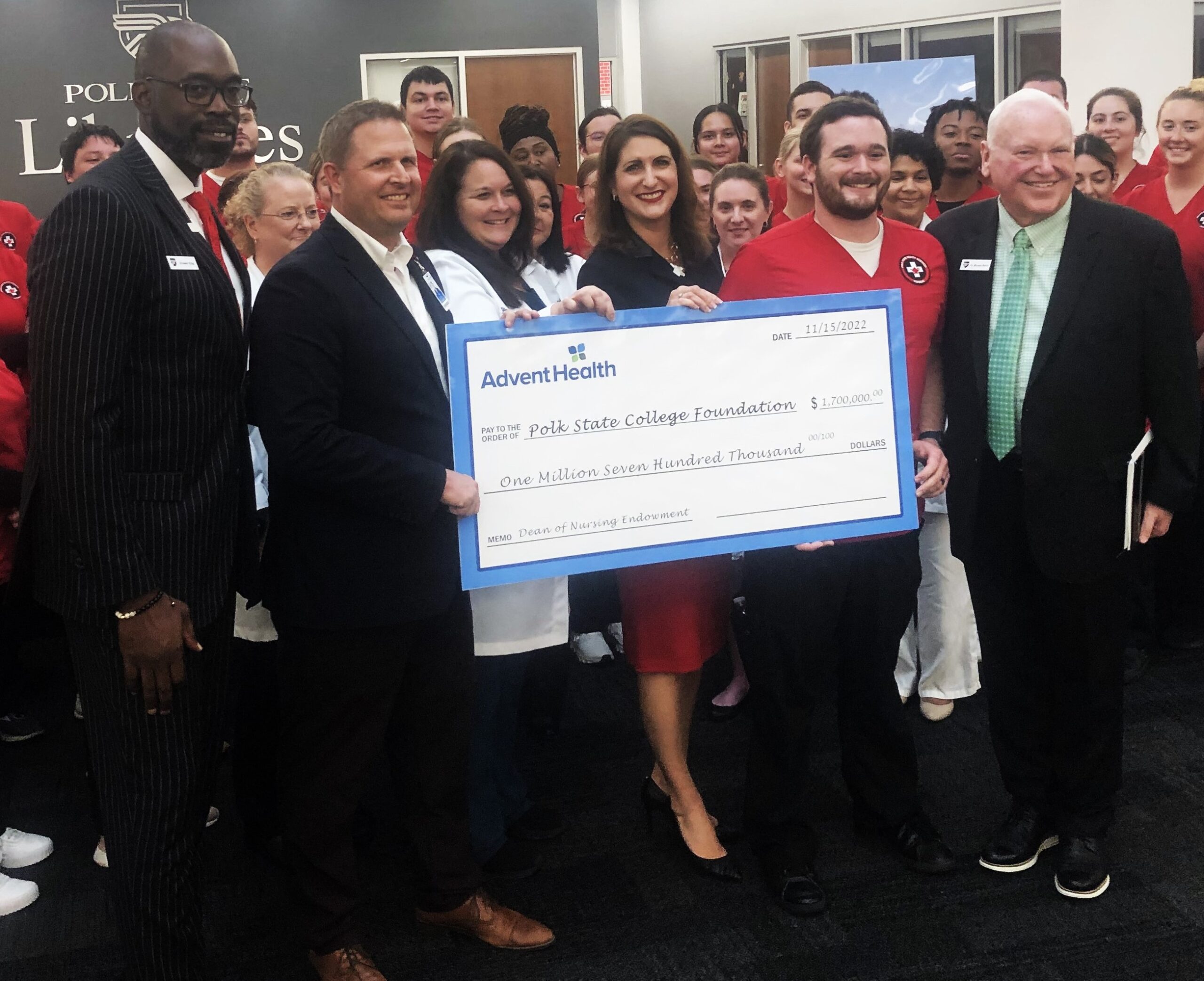
Health News
Features
-
A Strong Health Team Can Help Detect, Mitigate Birth Defects
by TERESA SCHIFFER Sponsored by Central Florida Health Care January is National Birth Defects Awareness Month, a time for discussions about how different birth defects can affect individuals over the course of their lifespan, and what can be done to minimize the risk of these occurrences. It’s important to understand that the term “birth defect”…
-
Pop Quiz: Trust Your Gut
How Much Do You Know About Microbiomes and Your Digestive Health? Did you know that some kinds of bacteria are actually beneficial to have in your digestive tract? While it may sound counterintuitive, certain strains of bacteria — like lactobacilli and Bifidobacteria, which make up your gut microbiome — offer a host of benefits for…
-
Funding the Future of Nursing
AdventHealth to Provide $1.7 Million for Polk State Program story and photos by PAUL CATALA Since 1965, Polk State College has instructed, encouraged, and placed about 21,500 students into successful nursing careers. On average, 430 nurses graduate from the school’s nursing college each year. Now that program will have even more to offer thanks to…
Columns
-
Take a Deep Dive Into Deep Venous Thrombosis
Deep venous thrombosis is a serious medical condition that affects millions of people. This is a condition in which a blood clot forms in a deep vein of the body, usually in the thigh, leg, and — rarely — the arm. The blood clot can break off and travel inside the vein to the lung,…
-
Antiplatelet and Anticoagulation Therapy
With the increase in longevity and improvement in the treatment of cardiovascular diseases, a sizable proportion of Americans are on either an antiplatelet agent or full anticoagulation. These are commonly known as blood thinners. In the next two columns, I’ll talk about the most commonly used blood thinners. Common indications for requiring antiplatelet agents are…
-
Celebrating Glaucoma Awareness Month
January is Glaucoma Awareness Month. What is Glaucoma? Glaucoma is a disease where the optic nerve in the eye becomes damaged over time. Each eye has an optic nerve. This nerve acts like a cable sending information about what you see to the brain. This is just like a cable to your television. Without treatment,…




